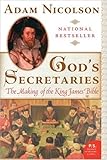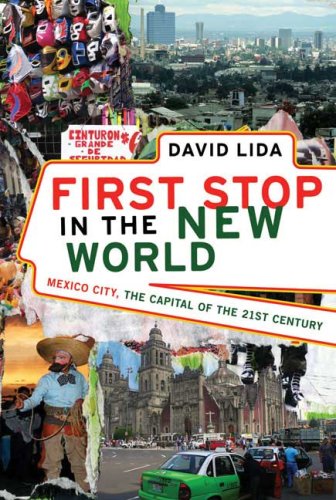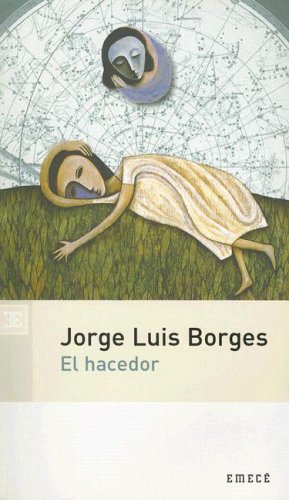This one comes from my friend Mark's blog, which I just discovered.
Anyway, here goes:
The Big Read reckons that the average adult has only read 6 of the top 100 books they've printed. Well let's see.
1) Look at the list and bold those you have read.
2) Italicize those you intend to read.
3) Underline the books you LOVE.
4) Reprint this list in your ownLJblog so we can try and track down these people who've only read 6 and force books upon them.
I can't figure out how to underline with Blogger's editor, so the books I've loved will be asterisked instead. Also, since some entries in this list are comprised of many works put into one I'm counting some (Shakespeare and Holmes) as both unread yet loved.
1. Pride and Prejudice - Jane Austen
2. The Lord of the Rings - JRR Tolkien *
3. Jane Eyre - Charlotte Bronte
4. Harry Potter series - JK Rowling *
5. To Kill a Mockingbird - Harper Lee (I read it in school, but I can't remember anything about it.)
6. The Bible (I've read bits and pieces of it.)
7. Wuthering Heights - Emily Bronte
8. 1984 - George Orwell
9. His Dark Materials - Philip Pullman
10. Great Expectations - Charles Dickens
11. Little Women - Louisa M Alcott
12. Tess of the D'Urbervilles - Thomas Hardy
13. Catch 22 - Joseph Heller
14. Complete Works of Shakespeare * (I've read bits and pieces.)
15. Rebecca - Daphne Du Maurier
16. The Hobbit - JRR Tolkien *
17. Birdsong - Sebastian Faulks
18. Catcher in the Rye - JD Salinger
19. The Time Traveller's Wife - Audrey Niffenegger
20. Middlemarch - George Eliot
21. Gone With The Wind - Margaret Mitchell
22. The Great Gatsby - F Scott Fitzgerald
23. Bleak House - Charles Dickens
24. War and Peace - Leo Tolstoy
25. The Hitchhiker's Guide to the Galaxy (I actually started it recently, but have been having a hard time getting into it.)
26. Brideshead Revisited - Evelyn Waugh
27. Crime and Punishment - Fyodor Dostoyevsky
28. Grapes of Wrath - John Steinbeck (I think I read this in school, but I can't remember now.)
29. Alice in Wonderland - Lewis Carroll
30. The Wind in the Willows - Kenneth Grahame
31. Anna Karenina - Leo Tolstoy
32. David Copperfield - Charles Dickens
33. Chronicles of Narnia - CS Lewis
34. Emma - Jane Austen
35. Persuasion - Jane Austen
36. The Lion, The Witch and The Wardrobe - CS Lewis (also in Chronicles of Narnia, #33)
37. The Kite Runner - Khaled Hosseini
38. Captain Corelli's Mandolin - Louis De Bernieres
39. Memoirs of a Geisha - Arthur Golden
40. Winnie the Pooh - AA Milne
41. Animal Farm - George Orwell
42. The Da Vinci Code - Dan Brown (I read the Spanish translation, which has the title El código Da Vinci. I doubt I'd ever have read it in English, but at the time it appropriately matched my Spanish ability.)
43. One Hundred Years of Solitude - Gabriel García Márquez * (I read it in Spanish, where it's called Cien años de soledad.)
44. A Prayer for Owen Meaney - John Irving
45. The Woman in White - Wilkie Collins
46. Anne of Green Gables - LM Montgomery
47. Far From The Madding Crowd - Thomas Hardy * (I think I read it and I'm sure we saw a film adaptation in English class in high school. I intend to read or re-read it in the future, in any case.)
48. The Handmaid's Tale - Margaret Atwood
49. Lord of the Flies - William Golding
50. Atonement - Ian McEwan
51. Life of Pi - Yann Martel
52. Dune - Frank Herbert * (Just stay away from the prequels.)
53. Cold Comfort Farm - Stella Gibbons
54. Sense and Sensibility - Jane Austen
55. A Suitable Boy - Vikram Seth
56. The Shadow of the Wind - Carlos Ruiz Zafon
57. A Tale Of Two Cities - Charles Dickens
58. Brave New World - Aldous Huxley
59. The Curious Incident of the Dog in the Night-time - Mark Haddon
60. Love In The Time Of Cholera - Gabriel García Márquez (I'll read this in Spanish when I get around to it)
61. Of Mice and Men - John Steinbeck
62. Lolita - Vladimir Nabokov
63. The Secret History - Donna Tartt
64. The Lovely Bones - Alice Sebold
65. Count of Monte Cristo - Alexandre Dumas (We have this in French—and I think in English and Spanish too. I'd like to read it in French, but if I do it'll be very slow going.)
66. On The Road - Jack Kerouac
67. Jude the Obscure - Thomas Hardy
68. Bridget Jones' Diary - Helen Fielding
69. Midnight's Children - Salman Rushdie *
70. Moby Dick - Herman Melville
71. Oliver Twist - Charles Dickens
72. Dracula - Bram Stoker *
73. The Secret Garden - Frances Hodgson Burnett
74. Notes From A Small Island - Bill Bryson
75. Ulysses - James Joyce
76. The Bell Jar - Sylvia Plath
77. Swallows and Amazons - Arthur Ransome
78. Germinal - Emile Zola
79. Vanity Fair - William Makepeace Thackeray
80. Possession - AS Byatt
81. A Christmas Carol - Charles Dickens
82. Cloud Atlas - David Mitchell
83. The Color Purple - Alice Walker
84. The Remains of the Day - Kazuo Ishiguro
85. Madame Bovary - Gustave Flaubert
86. A Fine Balance - Rohinton Mistry
87. Charlotte's Web - EB White
88. The Five People You Meet In Heaven - Mitch Albom
89. Adventures of Sherlock Holmes - Sir Arthur Conan Doyle * (I've read half of the Barnes and Noble two volume edition of the complete works. Holmes is awesome.)
90. The Faraway Tree Collection - Enid Blyton
91. Heart of Darkness - Joseph Conrad
92. The Little Prince - Antoine De Saint-Exupery (I read the French original but didn't understand all of it. Hey, it was my first, and so far only, book in French.)
93. The Wasp Factory - Iain Banks
94. Watership Down - Richard Adams
95. A Confederacy of Dunces - John Kennedy Toole
96. A Town Like Alice - Nevil Shute
97. The Three Musketeers - Alexandre Dumas
98. Hamlet - William Shakespeare (also in Complete Works, #14. I know I've seen it, but I can't remember if I've read it. I intend to read it in the future, in any case.)
99. Charlie and the Chocolate Factory - Roald Dahl *
100. Les Miserables - Victor Hugo









